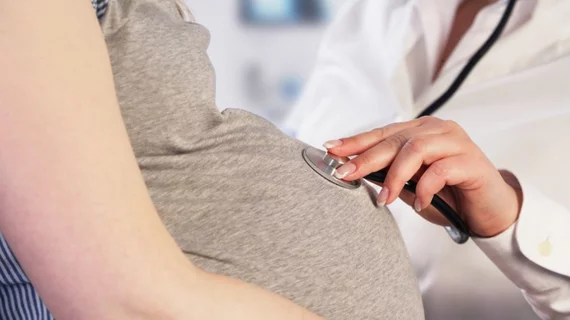Shear wave elastography helps predict emergency C-sections
Cervical shear wave elastography can be used to determine if a woman may eventually need an emergency cesarean section during labor.
Nearly one in five labor inductions leads to a required emergency C-section, first author Jing Lu, and colleagues wrote in Acta Obstetricia et Gynecologica Scandinavica. Typically clinicians use the Bishop score to assess the cervix prior to labor, but this method is largely subjective with low predictive accuracy.
Other methods such as ultrasound and strain-based sonoelastography have also been proposed to better assess the cervix before labor, but most, including the Bishop score, aren’t able to measure cervical stiffness—a key predictor of what will play out after a woman is induced.
The researchers prospectively analyzed 475 women who were induced into labor, 17.3% of whom needed a C-section. Using shear wave elastography, the team found that the stiffness of the cervix decreased toward the outer cervix, similar to findings of other studies.
What other analyses did not find, however, is that shear wave elastography measurements of the inner cervix and cervical length are independent predictors for overall C-section. Bishop score, they noted, is not. Lu and colleagues noted a high area under the receiver operating curve score for predicting overall C-section of 0.815.
"Our study suggests that in the future, ultrasonic assessment of the cervix may replace manual assessment in providing more objective and precise information on the condition of the cervix, which may lead to better management of induction of labor," senior author, Tak Yeung Leung, MD, of the Chinese University of Hong Kong, said in a statement.

